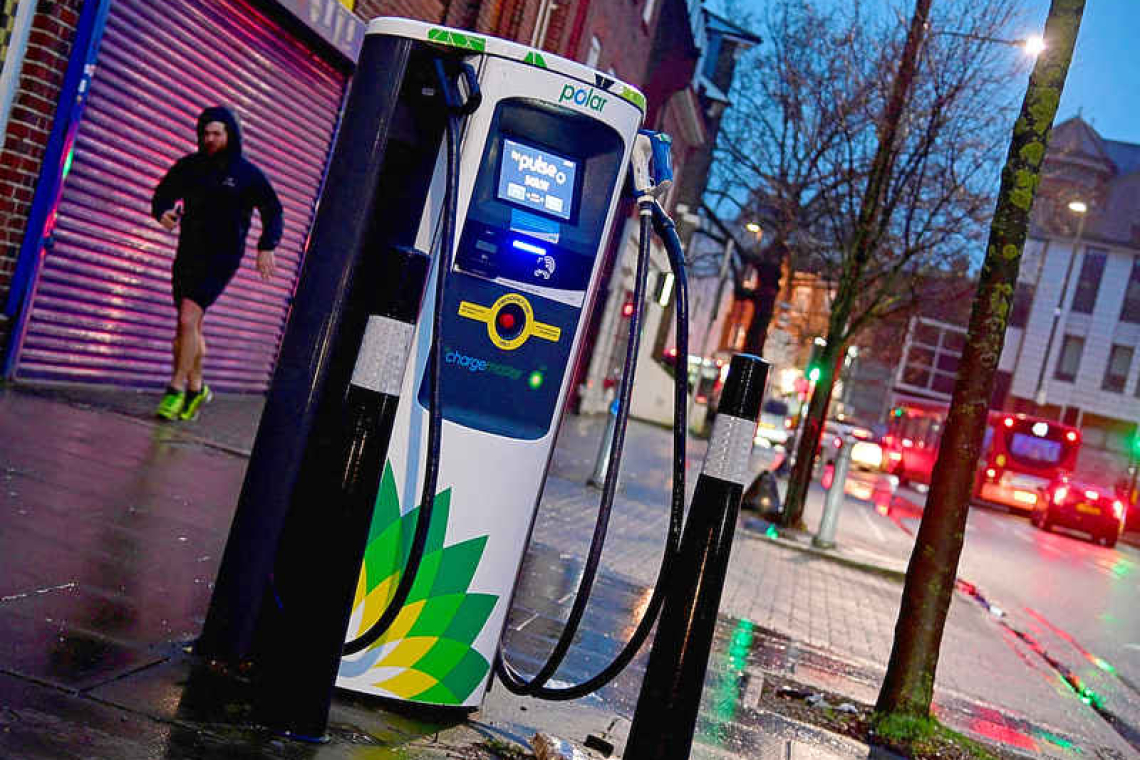LONDON--BP CEO Bernard Looney says he will not further scale back his energy transition strategy after ceding some ground earlier this year, despite investors penalizing the group over its plan to break away from rivals in cutting oil and gas output.
Taking office in February 2020 with a vow to reinvent the 114-year-old company, Looney laid out ambitious plans for the British energy giant to achieve zero net emissions by 2050, and to invest billions in renewable and low-carbon power. Since then he has navigated the group through some of the most tumultuous years in modern history, from COVID-19 to a rapid exit from Russia following the invasion of Ukraine last year, an energy price shock, and a global cost of living crisis. Earlier this year BP scaled down plans to cut hydrocarbon production by 2030, to 25% from 2019 levels from 40% previously. However, it remains the only major oil company aiming to reduce output by the end of the decade. Rival Shell plans to maintain oil production and grow its gas output by 2030, while TotalEnergies also aims to grow output. Investors have responded coolly to the transition plan. BP's shares have risen around 4% since Looney took office, against gains of around 20% and 29% for European counterparts Shell and TotalEnergies, and increases of 50% and 80% for U.S. rivals Chevron and Exxon Mobil. Oil and gas remain BP's main source of revenue by a large margin, helping lift the company's profits to a record $28 billion in 2022. But Looney said he won't be slowing its shift away from hydrocarbons any further. "We're holding our nerve on the transition," the 53-year-old Irishman said in an interview with Reuters in his office at BP's headquarters in central London. "I believe that's what the world needs.
And I believe it's our job to prove that is in the long-term interests of our shareholders." While governments around the world have encouraged companies to boost oil and gas output in the wake of Ukraine war, with some slowing their own decarbonization plans as energy bills soared, Looney portrays the oil sector as a sunset industry. The rapid growth in electric vehicle (EV) markets is a case in point, he said. "When it comes to private transport, for us, that game is over - it's EVs," Looney said. "That revolution is happening." BP plans to invest $55 billion to $65 billion in its new transition businesses - including EV charging, biofuels, hydrogen, wind and solar - between 2023 and 2030, when they will account for half the company's annual capital expenditure. "We believe that you must invest in today's energy system," he said.
"On the other hand, we believe the world needs to transition... that creates opportunity for our company." Over the past three and a half years, BP has also undergone big internal changes, with the changing of its top leadership, the departure of thousands of oil veterans and the hiring of thousands from the renewable world, including senior leaders. Looney dismissed criticism leveled by investors and analysts that the company is moving too fast and spending too much on low-carbon fuels and renewables whose returns pale in comparison with oil and gas today. "We will grow in sectors that will not be correlated to the oil price.
That will be very, very valuable," he said. "We can sit here today and say, is oil going to grow at 1% per year, 1.5%, or half a percent? We can debate that natural gas is going to grow at 2%." "If I look at sustainable aviation fuel, if I look at biofuels, if I look at biogas, if I look at EV charging, these are sectors which are growing at double-digit rates."







